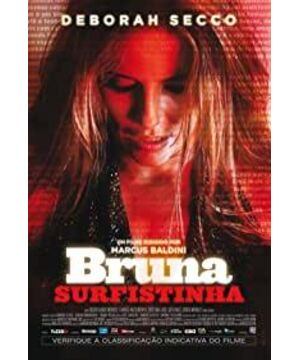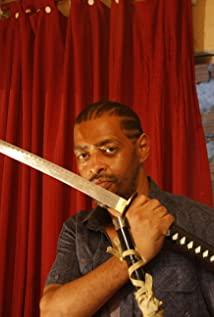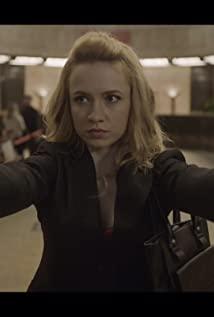Why do movies that reflect the lives of prostitutes always try to portray prostitutes as saints? This is one of my feelings after watching "Bruna Serfestin". I don't care about the moral standards for the profession of prostitutes, and I don't care much about why women become prostitutes, because everyone must have privacy when they come to such a situation. What I am concerned about is whether literary and artistic works have humaneness in shaping the role of prostitutes. Among the nearly 50,000 poems in "Full Tang Poems", there are more than 2,000 about prostitutes. It seems that this is a very interesting subject. In "Water Margin", it is written that Yan Poxi is a prostitute. At the same time, Li Shishi, who is affectionate and righteous, has become a character praised by others. Many literati in the Song Dynasty also wrote poems to praise Li Shishi's beauty and talent. It seems that the ancients did not comment too much on the professional status of prostitutes, but held high up prostitutes with both talent and beauty. Is this a human touch? I think it's indoctrination, the indoctrination of women. Therefore, it is not terrible to be a prostitute in the past, but it is not terrifying to be a prostitute. The heroine in the movie "Bruna Selfestin" is not only talented and beautiful, but also has a culture and a brain. She writes a blog and takes photos, sets up her own "studio", promotes herself, and writes humor articles for the world to enjoy. So, Bruna Sefistin, became the most famous prostitute in Brazil.
There is a very famous novel in Italy called "Roman Woman", which also has a subtitle called "Confessions of a Western Prostitute". The confession is a frank word, like the inner words of a close friend in a boudoir. Because prostitutes are, after all, a relatively marginal profession, novels devoted to prostitutes can easily become famous, especially in the first person. Bruna Sefistin's fame is not because of her "professional skills" that have been passed down from ten to ten, but because of her biography and publication of her professional experience. The title of the book is "THE SCORPION S SWEET VENOM", which translates into Chinese as "Sweet Venom of Scorpions". It means that in the oldest industry in the world, there is also a warm side. She said in the book: "If I am going to be a prostitute, I will never be an ordinary prostitute." So after three years of ups and downs, she chose to live with her first client Together, and became a writer, writing down the joys, sorrows and sorrows of her own experiences. She also persuaded young people to stay away from drugs in the book, and became a "godmother" with rich experience.
I have seen the movie "The Legend of Yanwa". It is said that the daughter of a prostitute grew up in a brothel and longed for her mother's glorious life. She entered the industry at the age of 12, and she did a good job. Later, she got love, and then she went to school Congliang. The story structure of "Bruna Selfestin" is roughly the same. The 17-year-old Bruna Selfestin was still a student. After a fight with her family, she became a prostitute. I also got love, and later I went to study from Liangliang. Forgive me for being good, whether 17-year-old Bruna Selfestin or 12-year-old Yanwa, when did she ever "conquer evil"? However, from ancient times to the present, prostitutes wash their hands in golden pots, and people in the world say that they are "good". Why is this? Bruna Cerfestin wrote a book, which has now been made into a movie. I don't know if this is Bruna Cerfestin's confirmation that he is "good".
Milan Kundera once divided the history of music into the upper and lower halves. I think this division can be generalized, and it can also be regarded as the upper and lower halves of literature and art, and the upper and lower halves of human beings. The first half is ancient, the second half is modern, and we live in the second half. If we say that in the first half, the description of women in literary and artistic works is about good and evil, and the second half is about freedom. When Ibsen wrote Nora, he didn't care about how women made a living after independence, only about freedom. Lu Xun refuted him and wrote bluntly: "Freedom is not something money can buy, but it can be sold for money. Human beings have a big shortcoming, that is, they are often hungry. To remedy this shortcoming, to prepare not to be a puppet , in the current society, economic power is the most important thing." When the heroine and her friend in "Bruna Sefisteen" told their hearts, "I care more about money, not friendship." This is obviously a Wise, but to be free in the financial sense, is it to be completely free? In the movie, Bruna Sefistin sells her body in exchange for financial independence, but in fact she is not independent. She is subject to clients, prostitutes, and peers. Even falling in love is not so easy. In the end, the smart heroine abandoned prostitutes and moved towards freedom of thought. With three years of experience, she has sold 250,000 copies and a bestseller in 15 languages. At this time, she is free. At this time, I discovered that all modern literary and artistic works with female themes are for the ending of "After Nora Goes".
(Published in "100 Days of Holidays" on October 28, 2011)
View more about Confessions of a Brazilian Call Girl reviews











